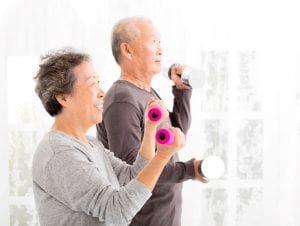
Touch is ubiquitous throughout our lives. As newborns, it’s the first sense to develop and it provides much of our initial knowledge of the world. As we grow, we experience touch in a myriad of forms: cuddling, hugging, kissing, massage, and even petting a stuffed animal. [Read more…]
 Thousands of people now speak to their smart devices to make their grocery lists. Students are more likely to type out notes in class than write them down. And we often type or dictate calendar reminders into our smartphones instead of writing them on a wall calendar. In short, people across the globe and in a wide variety of settings primarily use digital devices to record the things they want to remember.
Thousands of people now speak to their smart devices to make their grocery lists. Students are more likely to type out notes in class than write them down. And we often type or dictate calendar reminders into our smartphones instead of writing them on a wall calendar. In short, people across the globe and in a wide variety of settings primarily use digital devices to record the things they want to remember. 
 Millions of people will gather with family and friends this week to celebrate what may be one of the most quintessential American holidays: Thanksgiving. For many people, the holiday revolves around turkey, football, and the start of the holiday shopping season. Although those traditions are fun, research shows there are major benefits to remembering the sentiment that goes along with the season:
Millions of people will gather with family and friends this week to celebrate what may be one of the most quintessential American holidays: Thanksgiving. For many people, the holiday revolves around turkey, football, and the start of the holiday shopping season. Although those traditions are fun, research shows there are major benefits to remembering the sentiment that goes along with the season:  If you aren’t already convinced that
If you aren’t already convinced that 

 Daily life is full of low points for everyone. You may get frustrated after you step on the Legos that your kids carelessly left on the floor. You may get nervous about the speech you’re asked to give at your daughter’s wedding, or angry at the friend who ditched you for his new girlfriend.
Daily life is full of low points for everyone. You may get frustrated after you step on the Legos that your kids carelessly left on the floor. You may get nervous about the speech you’re asked to give at your daughter’s wedding, or angry at the friend who ditched you for his new girlfriend. 
 More than 42,000 people died in traffic accidents in 2021, the most in 16 years, according to
More than 42,000 people died in traffic accidents in 2021, the most in 16 years, according to 



